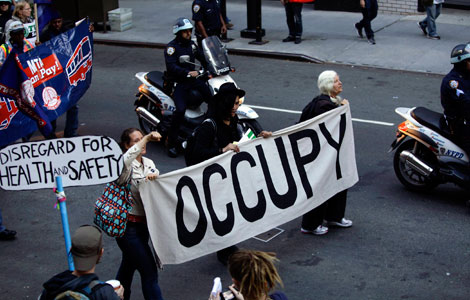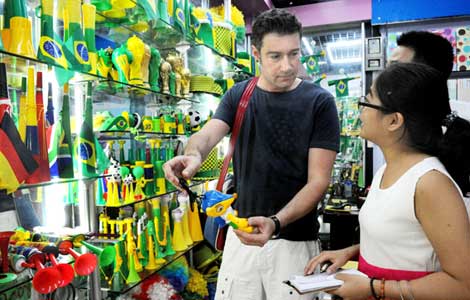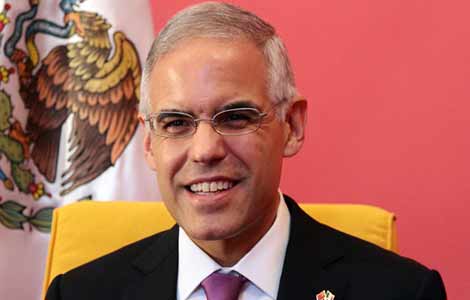Time for int'l firms in China to keep away from "gray zone"
Updated: 2013-09-18 14:57
(Xinhua)
|
||||||||
BEIJING -- French baby formula manufacturer Dumex was revealed earlier by Chinese national CCTV that its sales promoters bribed Chinese hospital staff to feed newborn babies with its products.
Dumex's case is, according to more reports from other Chinese media, merely the tip of an iceberg. Quite a few of international formula producers have pursued similar malpractice.
Frankly speaking, various international firms have made full use of loopholes of China's law enforcement over the past decades, rampantly setting foot in the so-called "gray zone" to make big and easy money.
The CCTV accused the international formula firms of providing milk powder to newborns in a bid to make them dependent on their products and getting contact information of newborns' family for further marketing, by paying "recommendation fees" and kickbacks to doctors and nurses.
By so doing, they can not only set higher prices to earn super profit, but also make domestic competitors far lagged behind.
Sales promoters of formula firms who pursue such malpractice have crossed the "red line" and certainly violates Chinese laws and regulations.
According to judicial interpretations issued in 2008, bribe and kickback-taking doctors and nurses could be punished with criminal penalty.
Under a regulation issued by the Ministry of Health in 2011, formula marketing campaigns should not be targeted at newborns of less than six months.
The Chinese authorities have recently enhanced law enforcement and launched various bribe probes into several international firms that indulge in "gray zone" practices.
China has tightened its crackdown on business bribery and moved away the soil for "gray zone" in efforts to build a clean, orderly and robust economy.
Earlier in August, the National Development and Reform Commission, China's top economic planner, handed down record fines totaling 670 million yuan ($108.65 million) to six baby formula companies on the mainland following an anti-trust probe, including Biostime, Mead Johnson, Dumex, Abbott, Friesland and Fonterra.
In July, China launched a probe into international pharma giant GSK for its suspected bribery and tax-related violations.
Such "cleaning-up" efforts are not aimed at foreign companies, Chinese companies are also targeted.
Earlier last month, several senior executives from the China National Petroleum Corporation, Asia's largest oil and gas producer, were removed and are under corruption investigation.
Therefore, Dumex and other international formula makers should stop such kind of malpractice as soon as possible, turning away from the "gray zone" and returning to the right track of observing Chinese laws and regulations.
It is also hoped that the self-investigations announced by Dumex itself could come out with convincing results soon.
All in all, China's efforts are aimed at building a clean, orderly and robust market with less and less space for malpractice, which is good for both domestic and international companies.
So, it is time for international firms to behave in accordance with Chinese laws and international practice.
Most Viewed
Editor's Picks

|

|

|

|

|

|
Today's Top News
China supports US-Russia deal on Syria
Trending news across China on Sept 18
EU ready for talks with China on investment pact
All's fare as apps take roads to upgrades
Space station to open for foreigners
Fine-particle pollution climbs in August: report
Number of China's female billionaires on the rise
Gun control debate gathers little steam
US Weekly

|

|














